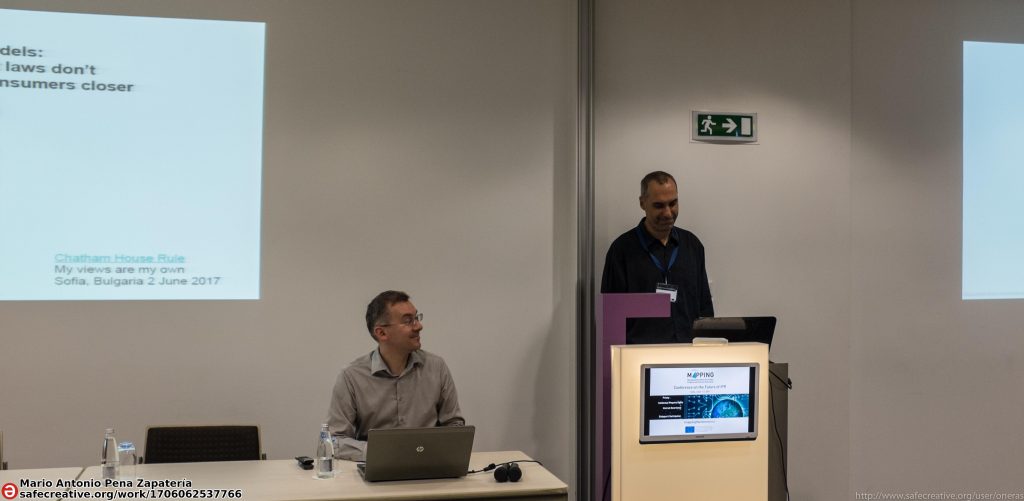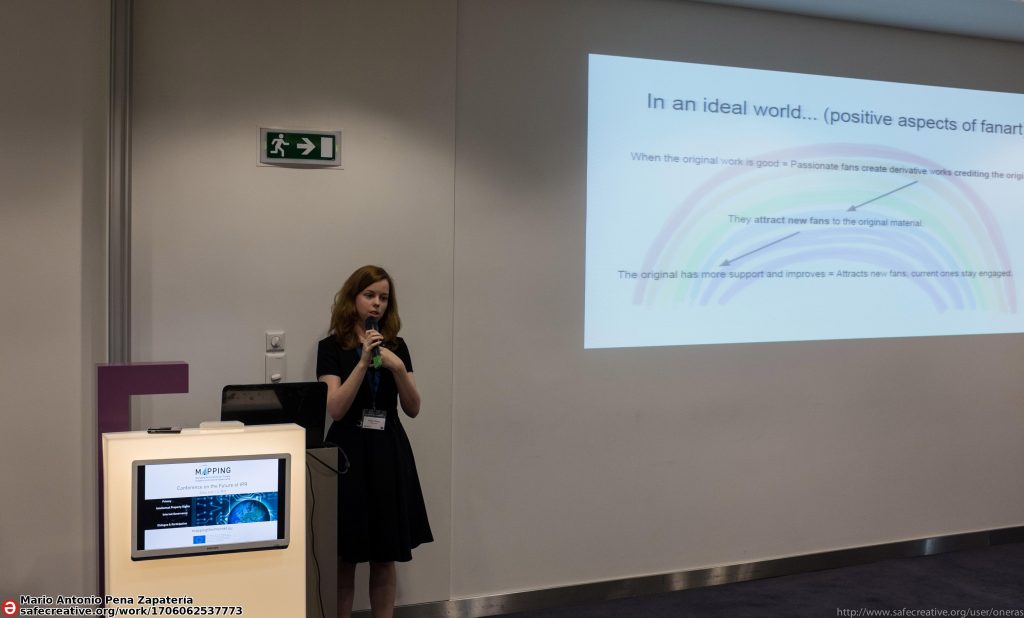
MAPPING Conference on the Future of IPR
Sooner this month, June 2017, we had the privilege of attending the MAPPING Conference on the Future of IPR in Sofia, Bulgaria. The Conference addressed the deficiencies and shortcomings of the current system of protection of intellectual property rights (IPR) in the European Union and worldwide. The IP experts attending, from a wide variety of backgrounds,
The IP experts attending discussed possible solutions to improve the current situation, considering the realities of the digital world from a wide variety of perspectives: civil, academic, industry, law, and government.
The agenda featured speeches addressing the following issues:
- The eminent reforms of the EU copyright and patent law.
- Possible changes to substantive and procedural IP law rules.
- European IP reforms in the global context.
- Alternative business models of economic exploitation of IPR.
- Universal prospects of the traditional IP, Open Innovation, and Open Knowledge.
We’d like to share with you a quick overview of the full event. This article isn’t a full analysis of the Conference, but a summary. Feel free to check the abstracts of those talks and topics you find more interesting.
The agenda:
The first session was preceded by the key-note speech by Amelia Andersdoter (Pirate Party, Greens-EFA) “Digital Industry 4.0: the EU moving forward” (abstract). This first session focused on the imminent reforms of Intellectual Property in the EU, in the context of the European Commission’s Digital Single Market (DSM) Strategy.
Nicolas Jondet, University of Edinburgh
The EU copyright reforms and the Proposed Directive on Copyright in the Digital Single Market. (abstract)
André Rebentisch, OpenTechSummit.net
The spaceman paradox – Getting patent governance right. (abstract)
Rihards Gulbis, Supreme Court, Republic of Latvia
Ilona Pētersone, Ministry of Culture, Republic of Latvia
Setting Legitimate Boundaries to Copyright: Copyright Exceptions and Limitations in the Winds of Change. (abstract)
The second session, “European developments in the global context” broadened the scope of the speeches as far as Japan and the USA, to put Europe’s situation in perspective.
Jim Killock, Open Rights Group
How Brexit could impact EU copyright, IP enforcement and trade relations. (abstract)
Seiya S. Takeuchi, National University of Yamaguchi
The current trend on restriction of IP enforcement in the East Asian countries. (abstract)
Kathryn Kleiman, Fletcher, Heald & Hildreth; Co-Founder, ICANN’s Noncommercial Users Constituency
Balancing free expression and trademark protection in the Domain Name System. (abstract)
Dinusha Mendis, Bournemouth University
‘Going for Gold’: 3D Scanning, 3D Printing and Mass Customisation – IP Law at Crossroads? (abstract)

On the second day, the key-note speech that opened the first session was given by Safe Creative’s CBDO, Mario Pena: “Business Models as Tools to Reduce the Gap between IP Positions: What business models do to bring authors, industries and consumers’ positions closer?” (abstract). This session was the turn to talk about alternative business models, and in what ways they are pushing the boundaries of traditional IP law.
Nevena Kostova, University of Edinburgh
Effects of new business models on creators and challenges associated with creators’ capacity to influence copyright policy’s response to new developments. (abstract)
Patrick Curry, BBFA
A special intervention on Blockchain. (abstract not available)
Marta Palacio, Safe Creative
Fan communities and related business models: The elephant in the room (Fan Fiction, Fan Art and the copyright business relations). (abstract)

Both during this and the next session, speakers and attendees argued the need for a more homogeneous IP framework in the EU, as a key element for its competitivity in a global market. These were the speeches that took place in the fourth and final session, “Alternative futures for IP”:
Walter Van Holst, Vrijschrift
Burn down Berne (the copyright convention, that is). (abstract not available)
Javier Ruiz Diaz, Open Rights Group
When open is not enough. (abstract)
Maria Lilla Montagnani, Bocconi University
Pledges and Covenants: The Keys to Unlock Patents? (abstract)
Judith Blijden, Kennisland; COMMUNIA
How to make copyright right for education. (abstract)
The challenges ahead.
As a general note, there were concerns about the shortcomings of the Commission’s proposal, in many aspects. For example, there is uncertainty ahead for business models based on User Generated Content (UGC) or those that facilitate access to content online.
A more homogeneous framework, in terms of IP exceptions and laws, was repeatedly mentioned as an important factor for the competitivity of the EU. The current situation remains too fragmented for a true DSM, due to the legal traditions of each country.
Some speeches went as far as proposing to modify the Berne Convention, or rather, update it, from a time when the political situation, the available technology, and the social needs were completely different, to today’s digital reality.
